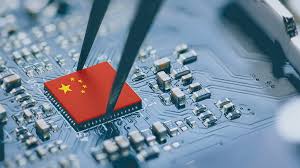
Can China innovate?
There are some who say China can’t innovate like America. This may be true in one sense. Communists aren’t typically very innovative unless there is significant government intervention and funding. In a story written for the National Interest, there is some suggestion that we do not take such a laissez-faire approach to our economy while making the necessary investments and returning to industrial policy. We should think of the current tech war in terms of a zero-sum game. It is in fact a war because China has called for it. Whatever you think about China’s system, they have been able to set goals where they have largely succeeded such as becoming the leader in EV manufacturing accounting for 58% of global EV production. Other examples however are less impressive where so many resources were squandered. While some think China might not be able to innovate, at least one writer thinks they can.
“But what if China can innovate? The outcome could be potentially catastrophic. If China can innovate and keep its cost advantage, the result will be a significant diminution of Western firms’ market share, including widespread and highly visible corporate bankruptcies. Imagine an America without Boeing, Intel, Micron, Google, Ford, GM, Merck, Lilly, Cisco, Caterpillar, Dupont, and Dow because Chinese firms put them out of business. We should not reject such a prospect out of hand. After all, America no longer has Lucent. GE and IBM are shells of their former selves, and there are few American solar panel producers left.
It is time for U.S. policymakers to recognize the nature of the challenge. Many deny China is a techno-economic challenger. Others see the problem through a single lens, such as dependency on rare earths. Still, others focus on limiting their military advancement. If the United States is to avoid becoming a second-rate technology economy, it is time to “break the glass” and craft an entirely new national innovation and economic policy system.
This change means rejecting not only neo-liberal free-market globalization on the right but green, redistributionist progressivism on the left. Instead, we need to copy some core elements of the Chinese innovation model and embrace “national power capitalism:” the idea that states compete in a zero-sum game for techno-economic power. Like defense policy, it is goal-oriented. America needs globally dominant biopharma, chip, aerospace, and AI industries. And therefore, the government needs to do what it must to ensure that outcome.” – Robert Atkins, National Interest


![[Video] BRICS: An enemy of the West?](http://vanjordan.com/wp-content/uploads/2024/10/Brics-logo-660x470.jpg)